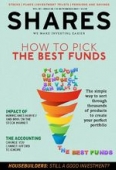Archived article
Please note that tax, investment, pension and ISA rules can change and the information and any views contained in this article may now be inaccurate.
The accounting change you cannot afford to ignore

A new accounting standard from January 2018 called IFRS 15 will affect the way companies recognise revenue from a long-term contract. We believe it could impact equity valuations as earnings forecasts may have to change for some companies.
Outsourcers and other contractors are among the types of companies which could be affected. Their contracts are often based on the provision of a service over several years. The way revenue from this contract is recognised and reported to the market has historically been open to interpretation.
No cash impact
On 7 September support services firm Capita (CPI) became one of the first businesses to clarify the impact of IFRS 15 as it restated its 2016 results. The outcome was a 30% write-down to earnings before interest and tax from £481m to £335m. Though importantly there was no impact on cash flow performance.
The market was not too alarmed by the news with the shares ultimately down just 2% on the day.
Investment bank Liberum says: ‘Going forward revenue is expected to be more evenly phased over the life of contracts and active software licences in line with the delivery of valued outcomes to clients and, consequently, the timing of profits is re-profiled.’
It adds Capita will ‘recognise lower profits or losses in the early years of contracts where there are significant upfront restructuring costs or higher operating costs prior to transformation, with a compensating increase in profits in later years.
‘The total net impact at the group level is a function of the balance of contracts in early or late stage of their life cycle at transition to IFRS 15.’
Who else might be affected?
Liberum notes many companies have not yet implemented the changes and sees ‘more surprises in the pipeline’ with aerospace and defence, construction, software, support services and telecoms firms most susceptible.
To highlight the risks, it has screened for stocks with the highest long-term receivables and amounts recoverable on contracts as a percentage of revenue.
This could be a sign the company has been booking most of the revenue from a contract upfront, something which will no longer be possible under the new rules.
A selection of relevant names is shown in the accompanying tables.
Important information:
These articles are provided by Shares magazine which is published by AJ Bell Media, a part of AJ Bell. Shares is not written by AJ Bell.
Shares is provided for your general information and use and is not a personal recommendation to invest. It is not intended to be relied upon by you in making or not making any investment decisions. The investments referred to in these articles will not be suitable for all investors. If in doubt please seek appropriate independent financial advice.
Investors acting on the information in these articles do so at their own risk and AJ Bell Media and its staff do not accept liability for losses suffered by investors as a result of their investment decisions.

 magazine
magazine










